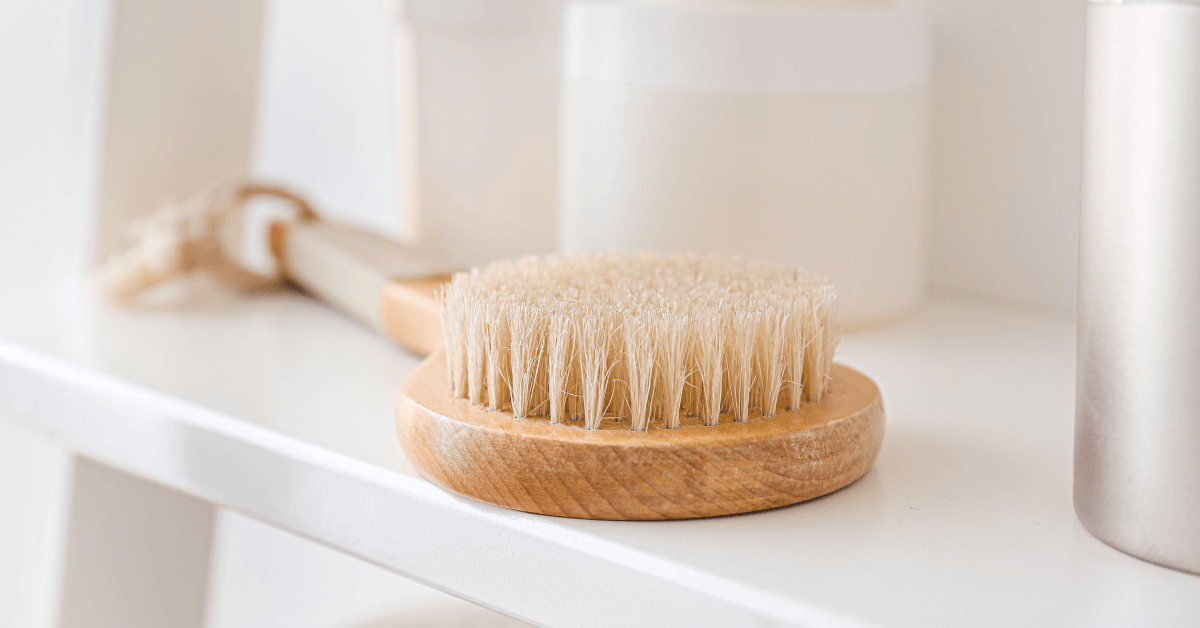How often have you gone into your beloved garden, only to find cat poop sprinkled all around?
Worse still, the cat isn’t yours! It’s highly likely it’s your neighbour’s cat and you probably don’t get on with them too!
For many people, gardens are their haven and the last thing they want is to tread in cat poop!
The smell, the inconvenience, the outright cheek!
Fear Not! Help is at hand with some of these preventive measures!
There are many commercial cat deterrents and this article gives an insight into many of them.
We’ve compiled a list of tried and tested cat deterrents and repellents for you to possibly overcome the nuisance. Our suggestions don’t always work for every cat, but at least you can say you tried!
It seems some cats have a contempt for some of these methods! (If only they could read the packaging, then they might conform?)
How to Stop Cats Pooping in Your Garden with Sprays

Water sprays
Water sprays and water guns tend to be one of the most effective cat repellents of all methods used.
As cats in general hate water and are a skittish lot, the mere sound of hissing water is often enough to deter them!
Best cat repellent spray
Contech Scarecrow
The Contech Scarecrow is a sprinkler system linked to a water supply. It is proven to be one of the best preventive measures in our research.
The system includes sensitive motion detectors that when triggered, operates a jet of water in the direction of the movement sensed. Most cats hate getting wet so this can prove very effective.
This is any movement by any action the system detects, so please do bear this in mind!
The Contech Scarecrow is renowned as being an effective cat deterrent however, so if thoughtfully placed, you should remedy your cat problem in no time!
Sonic
As a cat’s hearing is highly sensitive, a battery operated sonic sound emitting cat repellent is a relatively cheap and often effective deterrent.
Most sonic repellents offer a range of different pitches of sound that are almost always inaudible to the human ear, yet a real nuisance to a cat.
Sonic cat repellers can be solar assisted battery operated or mains powered.
Electric fence
Nets can be erected and taken down quickly and easily. Nets can be easily linked together to create a larger barrier.
They are also an effective deterrent for keeping dogs, badgers and rabbits out.
The fence can be powered by either mains or battery powered energisers.
Deterring Cats from Pooping in Your Garden with Smells
In General, cats hate strong smells and odours. The problem is that most smells fade pretty quickly, so regular treatment will be needed to overcome a cat’s inherent strong instinct to poop where it has made a base.
Moth balls
Mothballs deter cats, but using them for this purpose is not recommended as they are highly toxic, according to the Pet Poison Helpline.
When ingested, mothballs can kill cats, dogs and other pets. The vapour they give off is also quite harmful to most living creatures.
Vinegar and water
The only issue with this method is that the smell wears off pretty quickly so regular treatment is necessary.
Vinegar also is acidic so certain plants and grasses may well be damaged or even killed off in the process.
Some cats still ignore the smell of vinegar.
Coffee grinds

Again, not all cats will be deterred and also this method needs retreatment on a regular basis.
Tobacco
A pretty common smell unfortunately. And possibly one we should all hate?
Some cats have been known to love it however but generally, this is not the case!
Cayenne pepper
Cayenne pepper contains capsaicin, the chemical that repels cats away from the area.
Some commercially available pet cat repellent sprays use cayenne pepper as a main ingredient, along with other oils cats don't like, such as mustard oil, according to the Humane Society of Huron Valley.
You can also make your own spray repellents, mixing a cayenne-based hot sauce or ground flakes with water.
The University of Vermont Extension School recommends combining one part cayenne pepper sauce with 16 parts water to spray on plants.
The yucky scent, taste and irritating effects of the cayenne peppers should discourage neighbourhood kitties from entering, or returning to, your garden.”
Menthol / Vaporub
This is an interesting cat ‘repellent’ as it seems some cats actually love it! Who knew?
‘Christopher’ wrote this article on
“I confess that I become euphoric every time Mom (sic) soothes her sore muscles with a similar product that smells of menthol, which is derived from mint leaves.
Scientists don't know why we cats are attracted to menthol any more than they understand why we go crazy for catnip, another member of the mint family.
Menthol is safe when inhaled, but it can be toxic if ingested in large amounts.
Even lions, tigers and other big cats are attracted to menthol. Many zoos apply Vicks VapoRub to surfaces inside the cat enclosures to entertain the great cats.
Strangely, many pet cats are also enthralled by the odour of bleach, whether it's on a towel or used to clean the sink. I ignore it, preferring to hold out for menthol and catnip.”
Cat Repellent Plants

Cats in the main, cannot abide strong odours or smells as it disrupts what they are really looking for...food!
Strong smelling plants set in the in optimum positions are a great deterrent.
Scaredy Cat (Coleus Canina)
On a ‘
“Don’t take the name as gospel. The name was created for marketing purposes. This plant smells of dog urine and is supposed to deter both cats and dogs.
The scaredy cat plant only works on roughly 70% of cats, so it’s a bit of a risk.
The main problem with using the scaredy cat plant is that felines will often walk around them and go to another point in your garden.”
Curry Herb (Helichrysum Italicum) or Lemon Balm

From “
“Helichrysum Italicum (aka the Curry herb plant) and Lemon Balm plant are strongly disliked by most cats and are often purchased together by gardeners in the know to be planted in their borders.
Cats find the odour from both unpleasant and the coarse texture of the Curry plant is said to irritate them if they brush by it. If grown into tight bushes, the Lemon balm too is irritating enough for cats to avoid going near it.
Planting around your boundary will deter cats from entering your garden or if this isn’t practical, adding them to your beds and borders should stop them being used as litter boxes.
You might also want to grow a few in containers so they can be moved to troublesome spots. For example, placing on the path to your back garden can stop cats using it as a point of entry.
Both these cat repellent plants are said to be easy to grow and for most of us the smell is not unpleasant.
As an added bonus you can make a tea with the Lemon Balm leaves which is said to be a tonic for common colds, stomach cramps and headaches.
Bees and butterflies are said to be attracted to the Lemon balm too.”
Rosemary

The only problem is that it needs a warm and dry climate so in the UK you are probably best to grow Rosemary in containers.
Mint
Peppermint
Peppermint is probably the minty fragrance you're most familiar with. Some kitties dislike the smell and with good reason: peppermint contains salicylate, a chemical also found in aspirin and poisonous to cats.
Other cats are attracted to peppermint because it contains compounds similar to nepetalactone. If your kitty is attracted, keep in mind that eating it could be harmful to her but danger varies based on type of exposure.
The actual plant, such as the fresh herb or a dry tea bag, contains a low level of salicylate, while peppermint oil, such as for aromatherapy or in candy, presents a concentrated and toxic formulation.
Spearmint and Other Mints
Spearmint and hybrid mints available as teas, seasonings and candy contain lower levels of salicylate than peppermint and aren't as toxic to cats.
According to “
Hawthorn and Blackberry (Bramble)
“Hawthorn is a deciduous shrub with sharp thorns that if left not pruned would grow into a very large bush. Ideal for forming hedging and filling in gaps in hedges which cats may be walking through.
Wild Rose (rosa rugosa) has lots of sharp thorns and can also be used to form a hedge, it produces nice flowers.
Bramble (blackberry) have very sharp thorns which cats will not walk through, the other advantage is you get to pick the blackberry fruits off in summer.
There are thornless varieties of Blackberry so if deterring cats it’s best to ensure you don’t buy one of these varieties by mistake.”
Taken from
Geranium
Geraniums utilised as a ground cover plant, tend to deter cats from using your garden as a toilet.
The smell from the plant, plus the heavy ground cover make it difficult for the furry pest to feel comfortable and they’ll often look elsewhere to make their ‘deposits’.
Lemon and Orange Peel

The rind and peels from lemons and oranges have a overwhelming smell for cats when freshly sprinkled through your garden.
Whilst most people love this smell, the feline fiend might decide to move on to pastures new! Constant treatment around areas shown to be a cat’s toilet are necessary.
Lemon and Orange peel does tend to dry out quickly and lose their smell, so unless you eat a lot of them perhaps another solution is better!
Essential Oils:
Citronella
Produced in essential oils and plants, this strong smelling scent has a natural ability to deter most cats from your garden.
Citronella as the name suggests, smells strongly of lemon scent.
It does need constant treatment but takes just seconds to apply to problem areas. Simply sprinkle around freshly dug patches where the feline fiend has decided to poo and re-treat if it rains or the smell fades.
Stopping Cats Pooping in Your Garden with Ornaments
If they were readily available, we are sure that ornaments or statues could act as cat repellents!
Black metal lifesize cat scarers have been on the market for years. If they did the same for dogs, foxes and badgers, perhaps there would be even more success stories.
If you could obtain a life sized photo of an angry cat, we are sure this would do the same!
Life size cat
Protect your garden from unwanted cats and rodents with Packs of cat scarers.
Place them around your flowerbeds, vegetable patches and ponds or mount them to trees, fences or walls for an effective yet harmless way of keeping out unwanted cats.
These black metal cats with sparkling glass marble eyes look like the real thing to most cats!
Other Cat Deterrents - Make it Awkward for a Cat to Walk Freely
A cat tends to rely on its agility and nimble footwork to feel comfortable.
Whatever you can do to restrict their movement will go a long way to deterring them.
Garden Wire /Mesh
Garden mesh or chicken wire, laid just over or under the soil in areas used by the offending feline as a toilet, may deter them from using this plot.
Pet cats tend to instinctively want to bury their poop and using chicken wire in this way makes it impossible.
The mesh can also be uncomfortable for a cat’s soft and sensitive paws. However, the cat’s strong impulse to poop in the same areas, may override this effort.
Chicken wire does eventually rust and depending on its quality might not last as long as you’d expect!
As an animal lover, please ensure if it does rust it doesn’t harm the cat!
Prickle strips
Prickle strips are largely made from polypropylene and are narrow strips of raised harder points of plastic, designed for fences and areas where cats tend to walk.
The cat will generally avoid this area but as most cats are very agile, they do tend to have a limited value.
Fishing line
Using fishing line in a strategic places around the garden, make the cat’s natural pace awkward and troublesome.
To stop moggy coming into your garden, spread the fishing line in an area where it often walks.
For your own safety, ensure that it is securely anchored in place and not in unsafe areas for yourself or your guests!
Thorned bushes

There are many bushes and plants that make a cat’s preferred routes more awkward and difficult to track.
According to
• Hawthorn – can be pruned into an hedge that the SAS would find practically impenetrable
• Holly – Planted close together it creates a formidable barrier
• Berberis – Plenty of varieties that come in various sizes and all have prickles
• Blackthorn – Really nasty spikes that are guaranteed to keep domesticated cats and most other animals out!
• Blackberry – Plenty of thorns to keep all animals at bay (including animal lovers!), with the added bonus of producing berries.
Mirrors
Based on the premise that a cat doesn’t recognise itself, a mirror can act as a cat deterrent.
There are good exterior glass and acrylic mirrors available, and not only will it possibly prevent the offensive action from the feline culprit, but it can look quite attractive if thoughtfully and safely placed.
To stop a cat from coming in your garden, pick a place where it often passes or poops and place your mirror there.
Be aware that if it doesn’t work, you’ve doubled the amount of poop (and cats!), you see in the garden!
Clear bottles filled with water
There is a theory (that some people testify definitely works!), that a cheap method of cat deterrent is a clear plastic bottle filled with water!
The idea is you place these bottles around the garden and the cats see their own distorted reflection in the bottle of water and avoid that area.
Apparently it’s only effective until the cat realises it’s mistake and begins to ignore them!
A bottle of water will evaporate eventually and might tempt children to drink from them so make sure they are tightly capped!
Lion poo

Again based on a cat’s highly sensitive sense of smell, Lion poop is actually marketed as a cat deterrent! It doesn’t work on all pet cats, but can be an effective repellent.
Larger stone chippings
As most cat’s prefer to bury their poo, small chippings and soil is an ideal aid for a cat’s habit. Stone chippings over 20mm in size often act as natural repellents.
Conversely, it tends to follow that the harder it is for the cat to walk and dig the ground, the less inviting it is for to become a cat toilet!
If the cat in question does decide to relieve itself however, ensure that you neutralise this area with removal of the poop or another method of deterrent.
Once a cat establishes its area for a toilet, their instincts tend to override most deterrents.
Human urine
Yes, it needs to be said! A sprinkle of your tinkle can act as a pretty good cat repellent!
Just think about how you administer this method in case you end up with legal actions against you! The idea is the smell is more pungent than the cat’s urine and will deter the cat.
Dog!
It’s well known that dogs and cats don’t often get along! Depending on the dog, and the fact a dog isn’t exactly free from problems itself, this can be a great cat deterrent!
Maybe it might be a good idea to weigh up the pro’s and con’s of having a dog beforehand eh?
Another cat!

On a theme of ‘If you can’t beat ‘em, join ‘em, you might consider purchasing your own moggy?
The only issue here is cost, noise (night fights are commonplace for so called ‘domesticated’ cats and that includes neutered ones!) and your neighbours complaining your cat poops in their garden!
Responsible Owner
Being a responsible owner is not easy.
If your cat is an outdoor cat there’s little you can do.
You can try to teach it to use cat litter but if he isn’t playing ball (excuse the intended pun!), no amount of coaxing will help.
A litter box will only so far in keeping your neighbours happy!
We have to acknowledge there are cat haters out there who will stop at nothing to prevent a neighbour’s cat from fouling their home.
But perhaps the owner responsible for any neighbourhood cat that is known to cause a mischief, should either offer to periodically clean up the offending poop or maybe pay for to keep their pet cat in their own property?
This can prove very expensive, but sometimes costs outweigh the issues that arise from confrontation?
We aren’t all animal lovers!
Thankfully, the majority of us recognise that domesticated cats roaming all over the place is a common, natural thing.
But if you are determined to stop cats coming into your garden there are some tried and tested fence deterrents.
There are special fence rollers that make it almost impossible for domesticated cats to climb on.
Take at look at
Conclusion
In summary, the best cat deterrent methods seem to be water, sound, and movement restriction.
Sometimes the cheaper options often work the best. So persevere, and try these out yourself.
We’d welcome your feedback so we can become a ‘go to’ site for reference.































